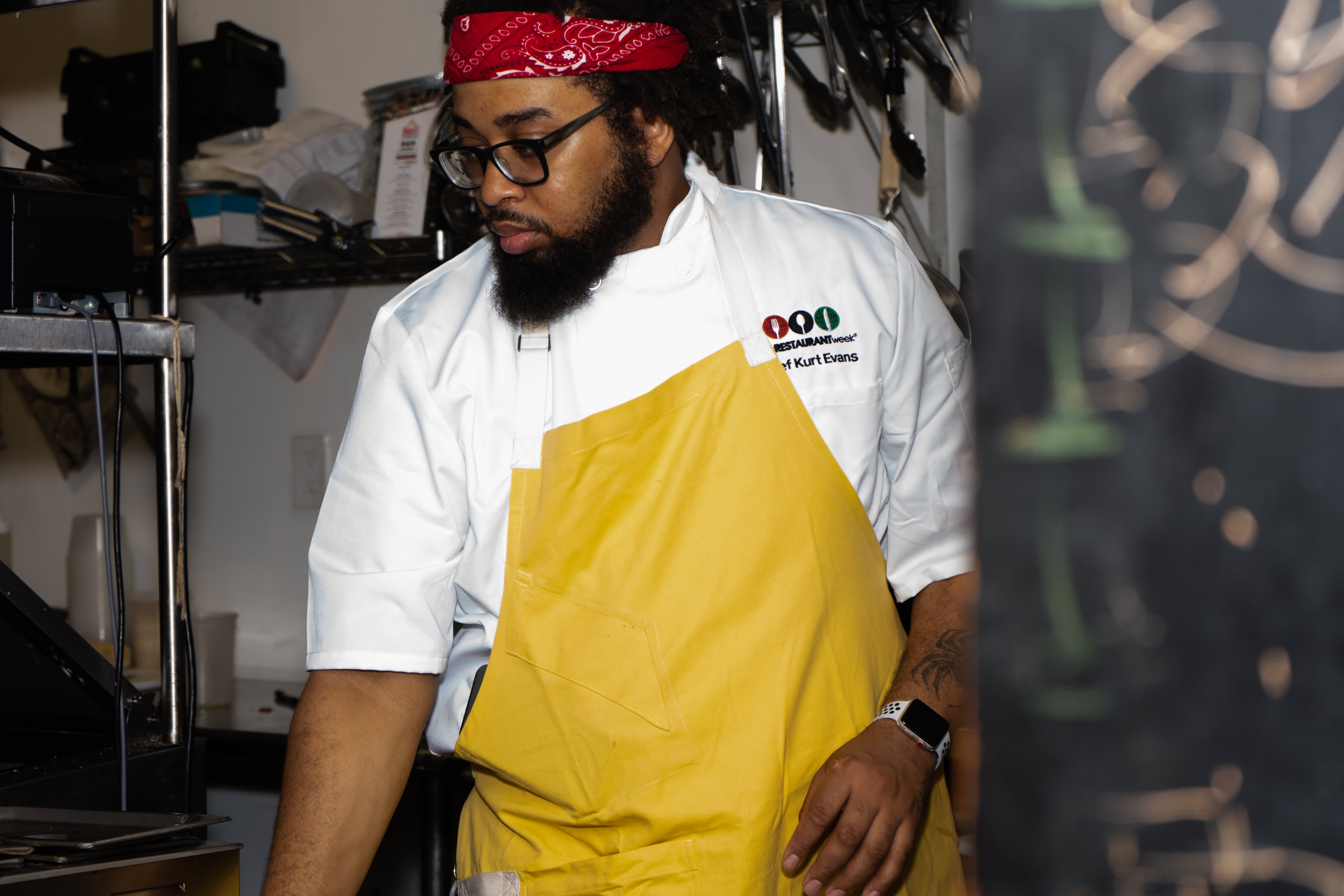This year has been met by a collision of both pandemic-induced financial uncertainty and the heightened attention toward racial injustice throughout the United States. For award-winning chef Marcus Samuelsson, it’s been a roller-coaster ride that’s evolved from a “total revenue loss,” at the outset of New York City lockdowns, to a 50% to 60% revenue decline amid ongoing indoor dining concerns throughout Manhattan, and increasing Covid-19 case counts throughout the country.
“The restaurant industry, in particular, is such a big part of New York’s identity,” Samuelsson told CNBC’s Frank Holland. “It represents the different cultures, the different people, the different types of food … and when one [business] closes, it takes away from that global experience you get on a Friday, Saturday or Sunday, going out and exploring something new.”
According to the University of California, 41% of Black-owned businesses have shuttered since February, compared to 17% of White-owned businesses. What’s more, Black-owned restaurants in the New York City area have seen their revenue fall as much as 70% to 80% since the start of the pandemic, according to local culinary business owners.
In fact, Black-owned businesses entered the lockdown in less secure shape than many other companies. As of 2019, “the overwhelming majority of businesses in majority black and Hispanic neighborhoods did not have enough cash on hand to pay for two weeks’ worth of bills,” according to a New York Times report. The city’s Department of Small Business Services found that only 2% of a $20 million city-wide small business loan program went to businesses in the Bronx, the New York City borough with the highest share of black people, while 57% went to Manhattan businesses.
Culinary Expert and Activist Chef Kurt Evans
Marc Williams
That impact inspired the founders of Black Restaurant Week, an initiative aimed at stimulating the growth of Black-owned culinary businesses, to bring their campaign to New York City for the first time in its five-year history.
Organizers say that participating restaurants in areas like Atlanta, Philadelphia and Houston — where Black Restaurant Week began — tend to see a revenue boost of 20% during the event that, for New York City businesses, will offer restaurants free registration, marketing and entry into a national registry of Black-owned eateries.
The goal of Black Restaurant Week:
“To create awareness and sustainability for Black-owned businesses that don’t have the capital … because this community was overlooked for far too long,” said Falayn Ferrell, co-founder of the Black Restaurant Week initiative. Ferrell added that business development is one of the areas in which Black restaurant entrepreneurs could use the most support.
“There’s a lot of room for growth and development,” Ferrell said. “There’s always a new restaurant opening, there’s always a new chef coming out of culinary school. … I think there’s just going to be additional ways and additional opportunities for us to continue [pushing forward].”
A stimulus stalemate
“Congress needs to act,” Ferrell said. “The restaurant industry as a whole makes up so many people, [people who are] really important staples of the economy. This can’t just be another loan … we need something that is really going to help make the hospitality industry sustainable,” he said.
House Speaker Nancy Pelosi and Treasury Secretary Steven Mnuchin are trying to craft an aid agreement. While the speaker said the sides are “just about there” on reaching a deal, she cautioned that passing it into law will take time as she and the Trump administration try to iron out remaining issues.
“If we can resolve some of these things in the next few days, it’ll take a while to write the bill,” Pelosi told reporters at the Capitol on Thursday.
The number of workers receiving and applying for unemployment benefits declined significantly last week, according to the latest Labor Department figures.
“Our food is too important — our stories are too important. They mean too much to us as a community,” Samuelsson said. “Black cooking is America’s food. We wouldn’t be anywhere without barbeque, creole and southern comfort food. Those are all part of who we are as America. Now let’s celebrate it together.”
Black Restaurant Week takes place Friday, Nov. 13 through Sunday, Nov. 22. According to its website, participating regions include Atlanta, the California Bay Area, Washington, D.C., Houston, Los Angeles, the “Midwest”, New Orleans and Philadelphia.
